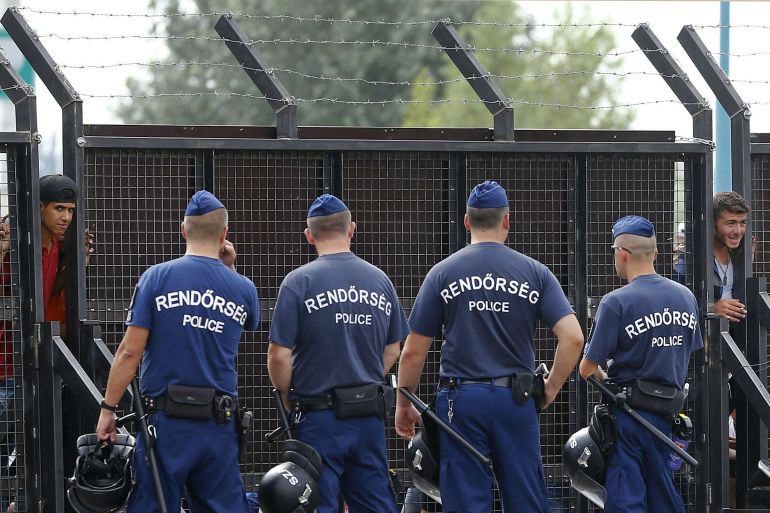Hungary frees more than 1,400 foreign convicts, angering the EU
Those released by Budapest were found guilty of people smuggling.

Hungary has released more than 1,400 foreigners convicted of people smuggling, a move challenged by the European Commission.
“We have released 1,468 detainees of foreign nationality who have been convicted of smuggling of human beings,” the National Command of Penitentiary Services told the Agence France-Presse news agency in an email.
Keep reading
list of 2 itemsPope meets refugees, urges Hungary to show charity to all
In April, Budapest announced that it would release foreign people smugglers and give them three days to leave the country.
The government based its decision on overcrowding in jails, saying there were 2,600 prisoners from 73 countries in its prison system, who represented high costs for taxpayers.
“Hungary had to take this decision on people smugglers because Brussels does not contribute to the cost of border protection but punishes Hungary when prisons are overcrowded,” Deputy Interior Minister Bence Retvari said.
In May, Budapest freed 777 people smugglers who were mainly Romanian, Ukrainian and Serbian nationals.
The European Commission, which is often at odds with Prime Minister Viktor Orban over rule of law issues, has launched a legal procedure against Hungary’s decision.
European Union executives said systems were not in place to monitor whether the people smugglers will serve the rest of their sentences in their home countries.
Austria, angered by the Hungarian move, tightened its borders with Budapest in May, fearing the smugglers would try to enter.
“We think this is an entirely wrong signal,” Austrian Foreign Minister Alexander Schallenberg told journalists ahead of an EU meeting in Brussels in May, adding that he demands “full clarification” from Budapest.
Orban has repeatedly said the EU’s migration policy is encouraging more people to enter the bloc.
In June, the European Court of Justice, the bloc’s top court, ruled that Hungary has not fulfilled its EU asylum obligations.
Hungary is along the Western Balkan route used by people smugglers to traffic people into the EU.
Human rights groups have documented abuses by Hungarian border guards against the rights of asylum seekers, but Hungary continues to remain an important part of the Western Balkan route because refugees and migrants can easily move from Hungary across Europe’s Schengen zone to wealthier EU countries like Austria or Germany.